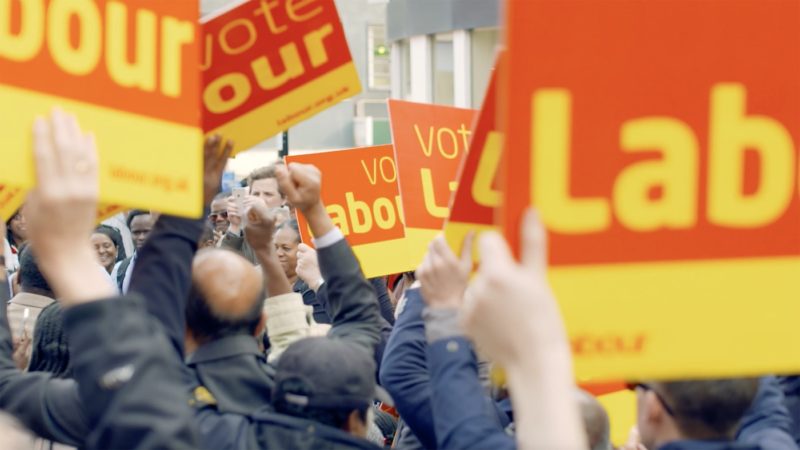
With Labour’s manifesto set to be launched on Thursday, you’d be forgiven for experiencing a strong sense of electoral déjà vu. At this stage in the 2017 general election, Labour was trailing miserably in the polls, desperately needing to make up ground to deny the Tories a shot at a hard Brexit, and all this with a leader whose public approval ratings were at -40.
The popular narrative amongst many Labour members – and indeed some Labour frontbenchers – is that we succeeded and claimed a dramatic comeback victory. In reality, we did nothing of the sort. There was no Labour Prime Minister, no end to the suffering of millions under Tory austerity, and – two and a half years later – no progress whatsoever in terms of preventing the hardest of Brexits. Instead, here we are again, in an almost identical position.
There are essentially four plausible results at each UK general election:
- Scenario 1 – A Labour majority.
- Scenario 2 – Both sides fall short of a majority but Labour are able to form a minority government or coalition.
- Scenario 3 – Both sides fall short of a majority but the Tories are able to form a minority government or coalition.
- Scenario 4 – A Tory majority.
In 2017, it was Labour’s manifesto launch that kicked off a comeback that meant we avoided the worst case Scenario 4. Jeremy Corbyn and the Labour frontbench fought a strong campaign that defeated the idea that austerity was necessary – reframing it as a political choice, and a dreadful one at that. Investment was what our country needed, and Labour were going to deliver it in abundance. These individual policies appeared popular with most of the electorate, but we still ended up in Scenario 3, which has been utterly disastrous for our nation. And between our 41% polling peak in early 2018, Labour’s support appeared to collapse to around 25% by the start of this 2019 campaign.
Here are two important questions we need to ask. Firstly, “Why do we find ourselves playing catch-up going into every election?”, and secondly, “Even if our policies are popular, are there other factors that are preventing us from winning the votes we need to reach Scenario 2, let alone the sacred Scenario 1 – an outright Labour majority?”
Taking these questions together, Labour’s fall in support between elections is most commonly put down to: a) our abject failure to quickly stamp out the dreadful scourge of anti-Semitism; and b) a lack of leadership on Brexit. Both have clearly played their part (and it is certainly worth noting that our most recent decline in came as the cross-party Brexit talks collapsed in May). But from my experience on the doorstep, in three constituencies in different areas of the UK, it seems clear that there are other underlying issues at play that explain why we are struggling to win over even those people who actually like our individual policies.
The key phrases here are ‘mood music’ and ‘brand’. Election promises can be popular, but a party’s image is very hard to turn around in a few weeks. ‘Mood music’ concerns centre particularly strongly on our approach to national security. Also in the mix are perceptions that Labour will ‘overspend’ and a fear that we are an ‘open borders’ party (despite our conference policy being rightly ditched by the NEC). Meanwhile our policies setting out what we can do for students and graduates – such as cutting tuition fees – have benefited from far more promotion than our recent education and training policies for non-graduates.
None of these issues matter much to the voters Labour won over in 2017 – those largely cosmopolitan, liberal, younger, globalist graduates in places such as the seats we gained in 2017, like Canterbury and Kensington. But they do matter to those typically older, non-graduate voters with more localist, communitarian values, often living in those seats that we lost in 2017 – like Mansfield and Middlesbrough – where we must now convince voters to back Labour if we are going to form a government.
In fairness, the leadership has recognised the need to appeal to these voters. Recent promises around adult education, apprenticeships and boosting British towns should be welcomed. In many senses they are offering far more than a return to the liberal centre ‘Blairite’ ideology ever could. But our party has given itself a huge up-hill challenge to completely alter perceptions among the types of voters we need to win over in just a matter of weeks.
Let’s hope we rally, that this article becomes redundant by December 13th, and that we deny what is effectively the Boris Johnson-Nigel Farage-Donald Trump coalition any more time in power. But let us also remember that after nine years of Tory lies, austerity and national self-harm, only a compassionate Labour government will suffice for those people facing the greatest hardship. Coming from 5km behind in a race to lose only by 1 or 2km is no victory if it leads to a Boris Johnson premiership. Only ousting the Tories will represent success, and end that feeling of déjà vu.
Joe Jervis is writing in a personal capacity.




More from LabourList
‘What Batley and Spen taught me about standing up to divisive politics’
‘Security in the 21st century means more than just defence’
‘Better the devil you know’: what Gorton and Denton voters say about by-election